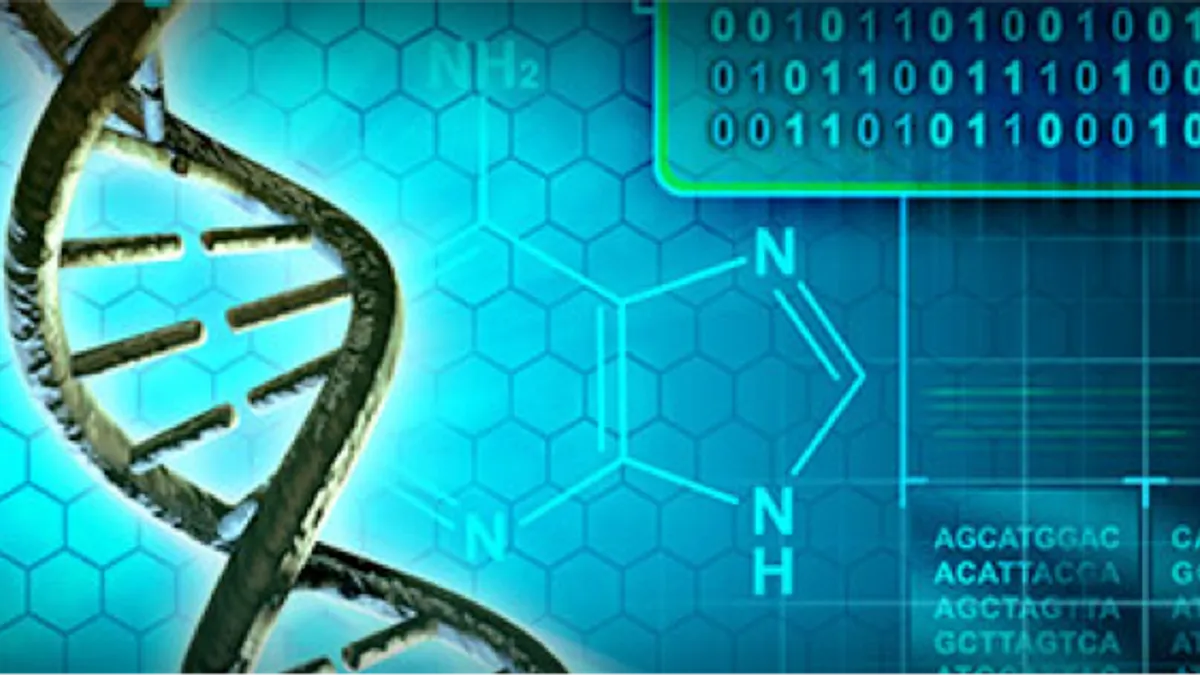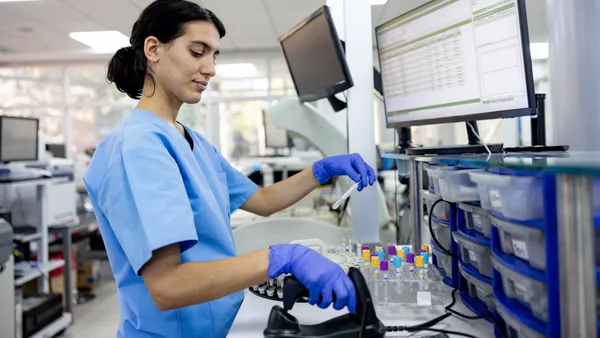Dive Brief:
- Foundation Medicine announced Wednesday that the FDA has approved its pan-tumor liquid biopsy test, which analyzes more than 300 genes and genomic signatures to help inform treatment decisions for all solid tumor cancers. This is the second agency nod the Cambridge, Massachusetts company has received for a pan-cancer blood assay.
- FoundationOne Liquid CDx is indicated for use as a companion diagnostic for four FDA-approved targeted therapies, including Rubraca (rucaparib), the first PARP inhibitor approved in a prostate cancer setting, and three tyrosine kinase inhibitors for non-small cell lung cancer (NSCLC). The test will also enable "accelerated companion diagnostic development for biopharma companies developing precision therapeutics," the company said.
- The market for tests that detect cancer biomarkers in the blood is heating up. Earlier this month, FDA approved a Guardant Health diagnostic that uses next-generation sequencing (NGS) to identify patients with mutations of the epidermal growth factor receptor gene in metastatic NSCLC. It was the first approval to combine two technologies — NGS and liquid biopsy — in one test to guide treatment decisions.
Dive Insight:
Foundation Medicine and Guardant Health are the two biggest players in the growing market for liquid biopsies, designed to analyze the genetics of cancer patients and help physicians choose treatment regimens. A slew of others including Freenome, Grail and Thrive Earlier Detection are developing liquid biopsies for cancer diagnostics, aiming to find traces of tumors in seemingly healthy people.
Foundation Medicine's test, a faster, noninvasive alternative to tissue biopsies for analyzing genetic material, is now FDA-approved to report short variants in 311 genes including rearrangements and copy number losses in BRCA1 and BRCA2, inherited mutations that increase the risk of breast and ovarian cancers.
Andrea Ferris, CEO of lung cancer nonprofit LUNGevity Foundation, noted that a tissue biopsy is often not possible due to tumor location or the patient’s health status.
"Blood-based biomarker testing options can help to expand access to these actionable genomic insights in patients with advanced cancer,” Ferris said in Foundation's press release.
FDA approval was based on analytical and clinical validation studies of more than 7,500 samples and 30,000 unique variants across over 30 cancer types.
The company is seeking additional companion diagnostic claims for FoundationOne Liquid CDx beyond the four FDA-approved precision therapies, Chief Medical Officer Brian Alexander said.
Nonetheless, a disclaimer from Foundation Medicine states that use of the liquid biopsy test does not guarantee a patient will be matched to a cancer treatment. In those cases, patients should get an FDA-approved tumor tissue test, if available, Foundation said.
The test is "covered across all solid tumors for eligible Medicare and Medicare Advantage beneficiaries" in accordance with the CMS national coverage determination, according to Foundation Medicine, which is a unit of Swiss biopharma Roche.
FoundationOne CDx, the company's NGS-based test that paved the way for regulatory approval of its liquid biopsy, was the first broad companion diagnostic approved by the FDA in late 2017 with Medicare coverage for qualifying patients across all solid tumors. It was also the first device with FDA’s breakthrough designation to complete the premarket approval process, and the second IVD authorized under the FDA and CMS' Parallel Review program.











